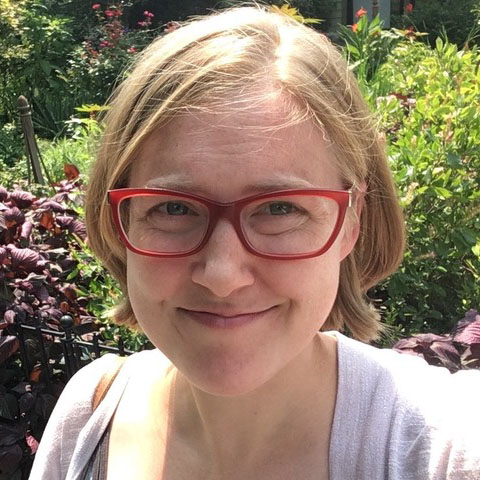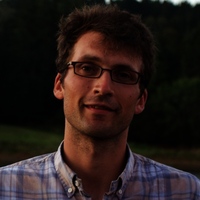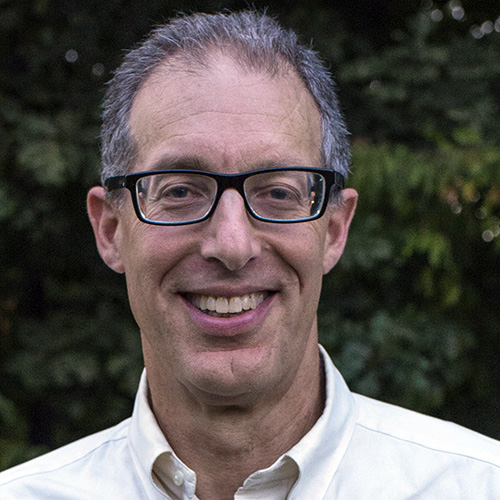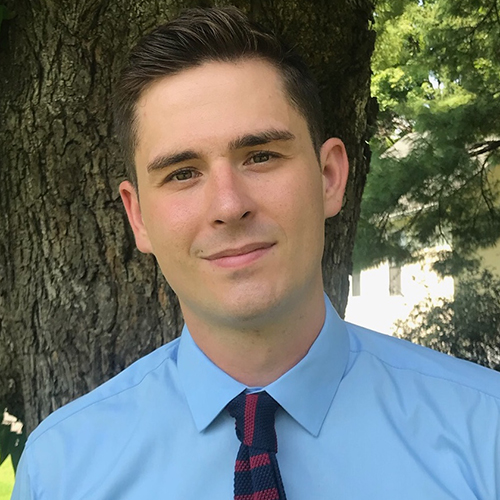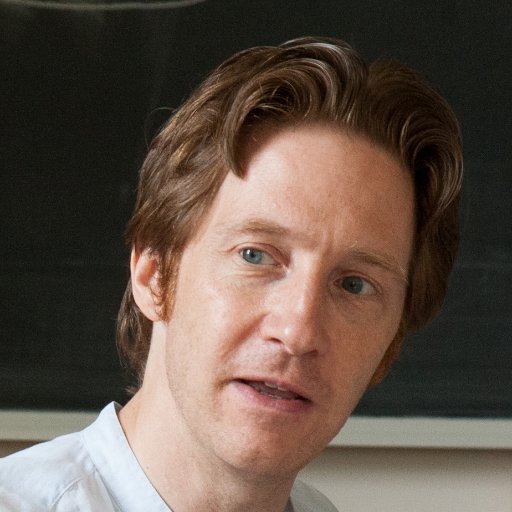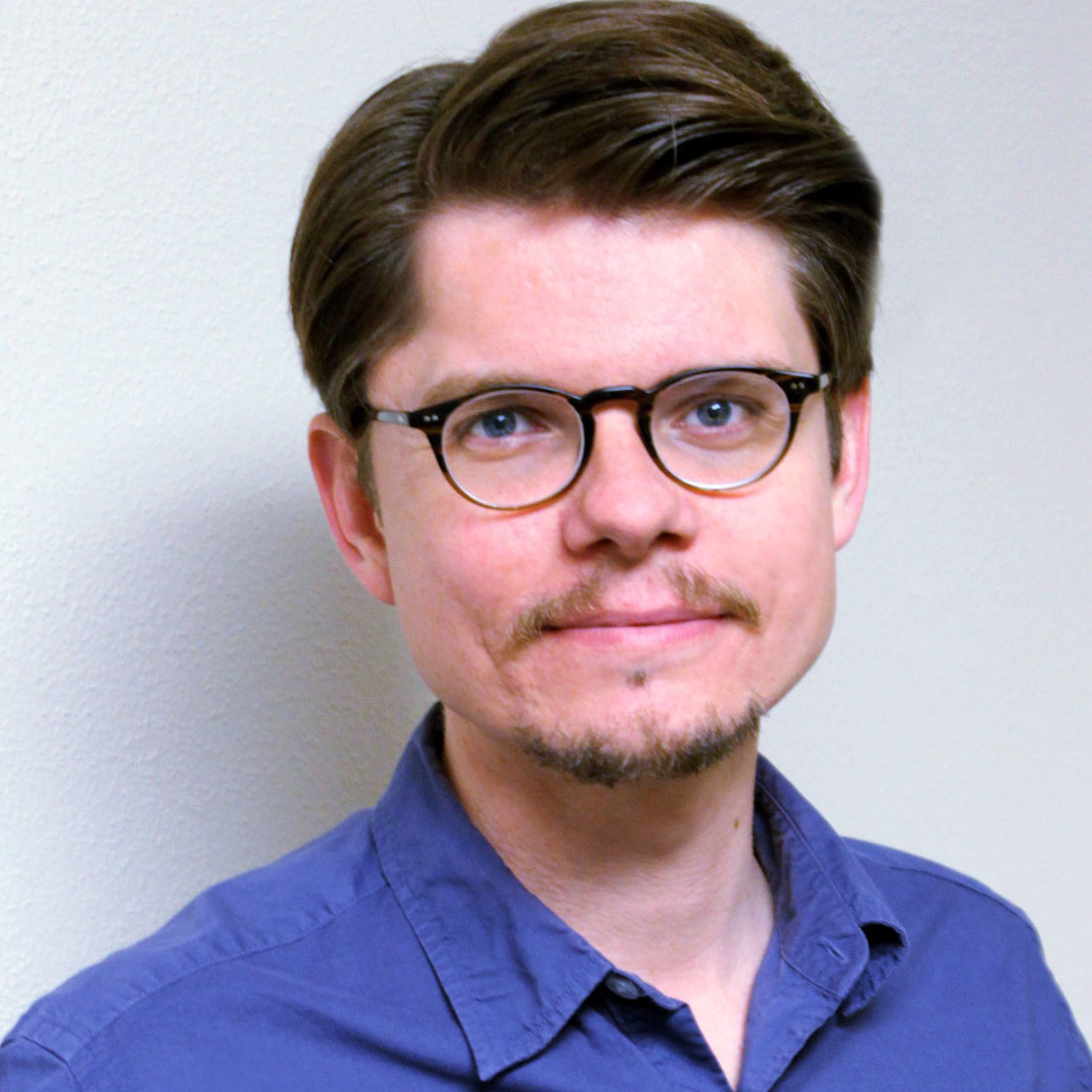Core Faculty
-
Lauren Curtis, Director
Lauren Curtis hails from the North of England, near Hadrian’s Wall, the northernmost boundary of the Roman Empire. After competing her BA in Literae Humaniores (Classics) at University College, Oxford, and her PhD in Classical Philology at Harvard University, she joined Bard in 2013. She teaches Latin and Greek at all levels, as well as offering courses in translation on topics such Gender and Sexuality in the Ancient World, introductory Roman history and culture, and Greek and Roman poetry and drama. Her scholarly research focuses on Latin poetry, especially of the Augustan period; Latin literature’s engagement with performance, religion, music, and dance; ancient book culture, antiquarianism, and cultural memory; gender and sexuality in the Greco-Roman world; and the literature and experience of ancient exile. Professor Curtis’s first book, Imagining the Chorus in Augustan Poetry, was published in 2017 by Cambridge University Press; articles and reviews have appeared in journals such as TAPA, Classical Philology, Vergilius, Phoenix, Arethusa, and Classical Review. She has presented papers and organized panels at the Society of Classical Studies annual meetings in San Francisco, New Orleans, and Seattle; at the École Normale Supérieure de Lyon, the Villa Vergiliana at Cuma, Italy, and at the University of Lisbon, among other venues. She is currently working on a commentary on Ovid’s exile poetry for Cambridge's Greek and Latin Classics (“green and yellow”) series, as well as a book, co-edited with Naomi Weiss, on the relationship between music and memory in the ancient world. She is always interested to meet with students who want to discover more about the Greek and Roman worlds! -
Robert Cioffi
Robert Cioffi’s research interests include Greek literature, travel and ethnography in the ancient world, the history of the novel, Greek and Roman religion, Greek and Egyptian cultural interactions, and papyrology. He teaches Greek and Latin at all levels, as well as courses in translation on topics such as Greek mythology, introductory Greek history and culture, and the invention of difference in the ancient world. He is the author of articles, reviews, and encyclopedia entries published in Oxford Handbooks Online, Journal of Hellenic Studies, Ancient Narrative, Mnemosyne, Gnomon, and The Virgil Encyclopedia, among others. In addition to his scholarly publications, he is a contributor to the London Review of Books. Honors and awards include: Loeb Classical Library Fellowship, Center for Hellenic Studies Fellowship, Frank Knox Memorial Fellowship, and Clarendon Fund Fellowship at Oxford. He previously served as lecturer in the Department of Classics at Dartmouth College.
BA, Harvard University; MSt, Greek and Latin Languages and Literatures, University of Oxford; PhD, Harvard University. At Bard: 2013–15, 2016– . -
James Romm
Education
- 1982-87, Ph.D., Comparative Literature, Princeton University
- l976-80, B.A., Classics, Yale University (magna cum laude)
Fellowships and Awards
- Birkelund Fellowship, Cullman Center for Scholars and Writers, New York Public Library (2010-11)
- Biography Fellowship, Leon Levy Center for Biography (2010-11; declined)
- NEH Summer Stipend (2009)
- Center for Hellenic Studies Junior Fellowship ('99-2000) for work on "Ancient Greek views of India"
- Guggenheim Fellowship (1999) for work on "Ancient Greek views of India"
- Long-term NEH Fellowship at the John Carter Brown Library (Providence, R.I., Fall semester 1993) for research on the Renaissance Classical tradition
- NEH Summer Stipend (Summer 1993)
Employment
- 2005- James H. Ottaway, Jr. Professor of Classics, Bard College
- 2000-2005, James H. Ottaway Associate Professor of Classics, Bard College
- 1996-99, Visiting Associate Professor of Classics, Fordham University
- 1990-96, Assistant Professor of Classics, Bard College
- 1987-90, Townsend Assistant Professor of Classics, Cornell University
Interests and Specializations
Greek and Macedonian history and politics; Herodotus; Geography and natural science
Languages
Ancient Greek, Latin, French, German, Italian
Publications
Books
- Ghost on the Throne: The Death of Alexander the Great and the War for Crown and Empire, forthcoming; Knopf, N.Y. 2011
- The Landmark Arrian: The Campaigns of Alexander, and illustrated and annotated edition of the Anabasis (tr. Pamela Mensch), Pantheon, N.Y. 2010
- Alexander the Great: Selections from Diodorus, Plutarch, Quintus Curtius,and Arrian (edited, with introduction and notes; translated by Pamela Mensch and James Romm; forthcoming, Hackett Publications, Spring 2005)
- Herodotus: On the War for Greek Freedom (edited, with notes and introduction; translated by Samuel Shirley; Hackett Publishing, 2002)
- Herodotus, a study in the Hermes series, ed. John Herington (Yale University Press, 1998).
- The Edges of the Earth in Ancient Thought: Geography, Exploration, and Fiction (Princeton University Press, 1992; paperback edition, 1994).
Articles 1. On Greek and Roman Literature and Science
- "Alexander and the Greek," "Alexander's Army and Military Leadership," "Alexander's Geographic Notions" and "Arrian's Life and Works," appendices to The Landmark Arrian, ed. J. Romm (N.Y. 2010)
- "Climates, Continents and Cultures: Greek Theories of Global Structure," forthcoming in Geography and Ethnography: Perceptions of the World in Pre-modern Societies, edd. K. Raaflub and R. Talbert (Blackwell, 2010), pp. 215-35.
- "Travel and Exploration in the Ancient Novel," in The Cambridge Companion to the Greek and Roman Novel, ed. Tim Whitmarsh (Cambridge 2008).
- "Herodotean Geography," appendix to The Landmark Herodotus, ed. R. Strassler (N.Y. 2007).
- "Georgraphy as Eschatology: Greek Alexander Lore and the Eastern Limits of India," in Ancient India in its Wilder World, edd. G. Parker and C. Sinopoli (U. Michigan Press 2007).
- "From Babylon to Baghdad: Teaching Alexander in the Post-9/ 11 Era, "CW 100 (2007) 431-5.
- "Herodotus and the Natural World," in The Cambridge Companion to Herodotus, edd. John Marincola and Carolyn Dewald.
- "Alex in Wonderland: Greece and Rome at the Edges of the Earth," Oxymoron 2 (1998) 11-12.
- "Strabo," reference article in Ancient Greek Authors (Dictionary of Literary Biography vol. 176), ed. Ward W. Briggs Jr. (Detroit 1997) 359-62.
- "Eratosthenes," "Strabo," reference articles in The Encyclopedia of Classical Philosophy, edd. D. Zeyl, P. Mitsis, A. Laks (Westport, Ct. 1997), 220-1 and 536-7.
- "Dog-Heads and Noble Savages: Cynicism before the Cynics," in The Cynics: The Cynic Movement in Antiquity and its Legacy for Europe, edd. Bracht Branham and Marie Odile Goulet-Caze (University of California Press, 1996).
- "Novels beyond Thule: Antonius Diogenes, Rabelais, Cervantes," in The Search for the Ancient Novel, ed. James Tatum (Johns Hopkins University Press, 1994) 101-116.
- "Alexander, Biologist: Oriental Monstrosities in the Epistola Alexandri ad Aristotelem," in Discovering New Worlds: Essays in Medieval Exploration and Imagination, ed. S. Westrem (Garland Medieval Casebooks #2, N.Y. 1991) 16-30.
- "The Shape of Herodotus' World," in Norton Critical Edition of Herodotus: The Histories, edd. W. Blanco and J. Roberts (Norton, 1992) 323-7.
- "Aristotle's Elephant and the Myth of Alexander's Scientific Patronage," AJP 110 (1990) 566-75.
- "Wax, Stone, and Promethean Clay: Lucian as Plastic Artist," Classical Antiquity 9 (1990) 74-98.
- "Herodotus and Mythic Geography: The Case of the Hyperboreans," TAPA 119 (1989) 97-117.
- "Lucian and Plutarch as Sources for Kepler's Somnium," Class. and Modern Lit. 9 (1989) 97-107.
Articles 2. On the Renaissance Classical Tradition
- "Myth, Maps and History: Abraham Ortelius and Plato's Atlantis," in Abraham Ortelius, Humanist and Cartographer (catalogue of Ortelius exhibition at the Museum Plantin Moretus, Antwerp) 1998.
- "A New Forerunner of Continental Drift," Nature 367 (Feb. 3, 1994) 407-8.
- "New World and novos orbes: Seneca in the Renaissance Debate over Ancient Knowledge of the Americas," in vol. 1 of The Classical Tradition and the Americas, edd. Meyer Reinhold and W. Haase (De Gruyter, 1994) 78-116.
- "Abraham Ortelius as Classical Humanist: The 16th-century Debate over Ancient Discoveries of the Americas," Allegorica 15 (1994) 49-69.
- "More's Strategy of Naming in the Utopia," The 16th Century Journal 22 (1991) 173-83; reprinted in vol. 12 of Great Political Thinkers, edd. J.M. Dunn and Ian Harris.
Articles/Books 3. Forthcoming or In Preparation
- "The Atlantis Myth in 19th-century America," forthcoming in America's Classical Greece, ed. W. Haase (De Gruyter).
- "Columbus and King Solomon: The Biblical Ophir and the Discovery of the Americas," forthcoming from Berghahn Books in a collection of papers from the "Jews and the Expansion of Europe" conference (John Carter Brown Library 1997)
Public Lectures
- Keynote address at "Other Worlds" conference, U. of Pennsylvania, upcoming (Feb. 2000)
- Keynote address at conference on Ethnography in the early Empire, U. of Chicago, upcoming (Feb. 2000)
- "King Solomon in the Americas? The Problem of Ophir in Medieval and Renaissance Hermeneutics," upcoming in the Harvard Medieval Studies Colloquium (November 1999)
- "Greeks and Indian Brahmans: The Mysterious Deaths of Calanus and Zarmanochegas," U. of Chicago Ancient Societies seminar (May 1999), Fordham U. Classics Colloquium (May 1999)
- "The Americas and Biblical History: The Sacred Geography of the World," U. of Minnesota (Nov. 1998).
- "Postcards from the Edge: The Greek and Roman Ethnographic Utopias," Brown U. conference on Utopias and Imaginary Worlds, March 1998.
- "The Things of the Mother: Hellenizing and Cross-dressing among Herodotus' Scythians," Bryn Mawr Classics Colloquium, March 1998; CUNY Classics colloquium, May 1997.
- "Nomos Basileia: The Scythian-Amazon marriage in Herodotus," APA Convention 1997.
- "Alexander the Great: Kingship and Cosmic Order," AIA Symposium, Bronxville, N.Y. March 1997.
- "Seneca and Columbus: Classical Sources for the Discovery of the Americas," John Carter Brown Library, Providence, R.I., Oct. 1993; Center for Literary and Cultural Studies, Harvard, Jan. 1992; APA Convention 1992.
- "The Atlantis Myth in the Americas," Montclair State College, Upper Montclair, N.J., Dec. 1992.
- "Sources of the Nile in Greco-Roman Literature and Science," APA Convention 1993.
- "Alexander as Anti-Hero in the Alexander Romance," APA Convention 1991.
Administrative Service
- Co-organizer, Fordham Honors Program for freshmen, 1996-97
- Director of Bard First-year Seminar program (a required humanities course), Fall 1991 and Spring 1995; supervised recruitment and organization of 20 faculty members teaching 320 students
- Co-organizer and co-teacher, "Initiation to Classical Culture" program, Cornell University, 1988-90
Professional Service
- Organizer and Chair of panel on "The Classics as Counter-culture: Subversion, Challenge and Rebellion in the Classical Tradition," scheduled for 1998 APA Convention.
- Member of APA Committee on the Classical Tradition (term started December 1995)
- Chair of "Greek Historiography" panel at APA-AIA convention, December 1996
- Representative to ad hoc APA Committee on Graduate Travel Awards (1993-4)
- Referee for manuscripts submitted to TAPA, Classical World, Arion, St. Martin's Press
- Member of APA, CAAS, Institute for the Classical Tradition, New York Classical Club
References
- Deborah Boedeker, Director, Center for Hellenic Studies, 3100 Whitehaven St. NW, Washington, D.C. 20008
- Diskin Clay, Dept. of Classical Studies, Duke U., Durham, N.C. 27708
- Harry Evans, Dept. of Classics, 234 Administration, Fordham U., Bronx, N.Y. 10458
- Robert Fagles, Dept. of Comparative Literature, 318 East Pyne, Princeton U., Princeton, N.J. 08544
- David Konstan, Depts. of Classics and Comparative Literature, Brown U., Providence, R.I. 02912
- Charles Segal, Depts. of Classics and Comparative Literature, Harvard U., Cambridge, MA 02138
- David Sider, Dept. of Classics, 233 Administration, Fordham University, Bronx, N.Y. 10458
- Froma Zeitlin, Dept. of Classics, 104 East Pyne, Princeton U., Princeton, N.J. 08544
-
David Ungvary (Sabbatical Spring '26)
B.A. Duke University; M.St., Corpus Christi College, Oxford; Ph.D., Harvard University. Research and teaching interests include Latin poetry and the literature of Late Antiquity; late Roman and early medieval history, especially literary, cultural, and intellectual history; early Christianity and asceticism; ancient and medieval theories and practices of authorship. Professor Ungvary's work has appeared in Early Medieval Europe and the Bryn Mawr Classical Review. He is currently under contract with Routledge to produce a translation of and commentary on the complete works of Eugenius of Toledo. He has presented his research at annual meetings for the Society of Classical Studies, the Medieval Academy of America, and the International Medieval Congress, among other venues. Fellowships and grants include a Presidential Scholar Dissertation Completion Fellowship (Harvard, 2017-18); the William R. Tyler Fellowship (Dumbarton Oaks, 2015-17), the Lionel Pearson Fellowship (2010-11), and a Beinecke Scholarship (2010-2014). He is currently working on a monograph, based on his dissertation, that explores intersections of ascetic Christianity and classical Latin poetry in the post-Roman period. -
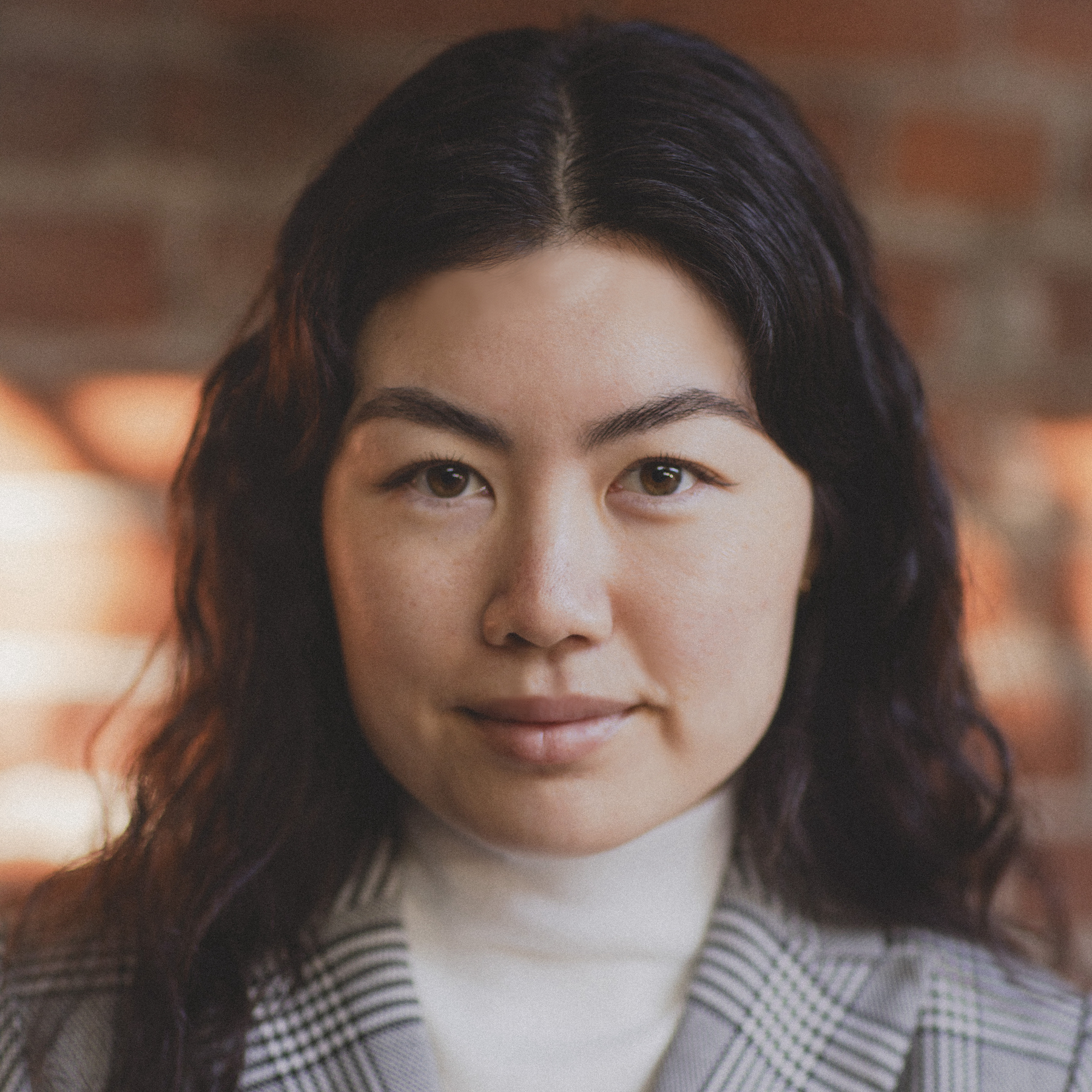 Jasmine Akiyama-Kim
Jasmine Akiyama-Kim
Jasmine Akiyama-Kim
Originally from the West Coast, Jasmine Akiyama-Kim holds a PhD in Classics from the University of California, Los Angeles. Her research focuses on historical and literary texts of the Roman principate, with a particular interest in issues of mimesis, genealogy, and time. Her first book project, provisionally entitled Simulacra of Nero: Imposture, Succession, and Recognition in Imperial Literature, examines how Latin and Greek authors under the principate theorized succession vis-à-vis other mimetic discourses. She has regularly presented her research at annual meetings of the Society for Classical Studies. At Bard she has taught Latin at all levels, “The Roman World,” a course on imposture and performativity in Roman culture, and a course on conceptions of race and landscape in the ancient Mediterranean. She also has experience teaching pedagogical theory and practice. She is always happy to talk with students who are curious about Greece and Rome under the emperors.
BA, Robert D. Clark Honors College, University of Oregon; MA, PhD, UCLA. At Bard since 2024.
Affiliated Faculty
-
Peter Sourian Senior Lecturer in the Humanities
[email protected]
845-758-7142
Office: Hegeman 303
Full Bio -
-
-
Charles Ranlett Flint Professor of Humanities
[email protected]
845-758-7450
Office: Seymour 106
danielmendelsohn.com
Full Bio -
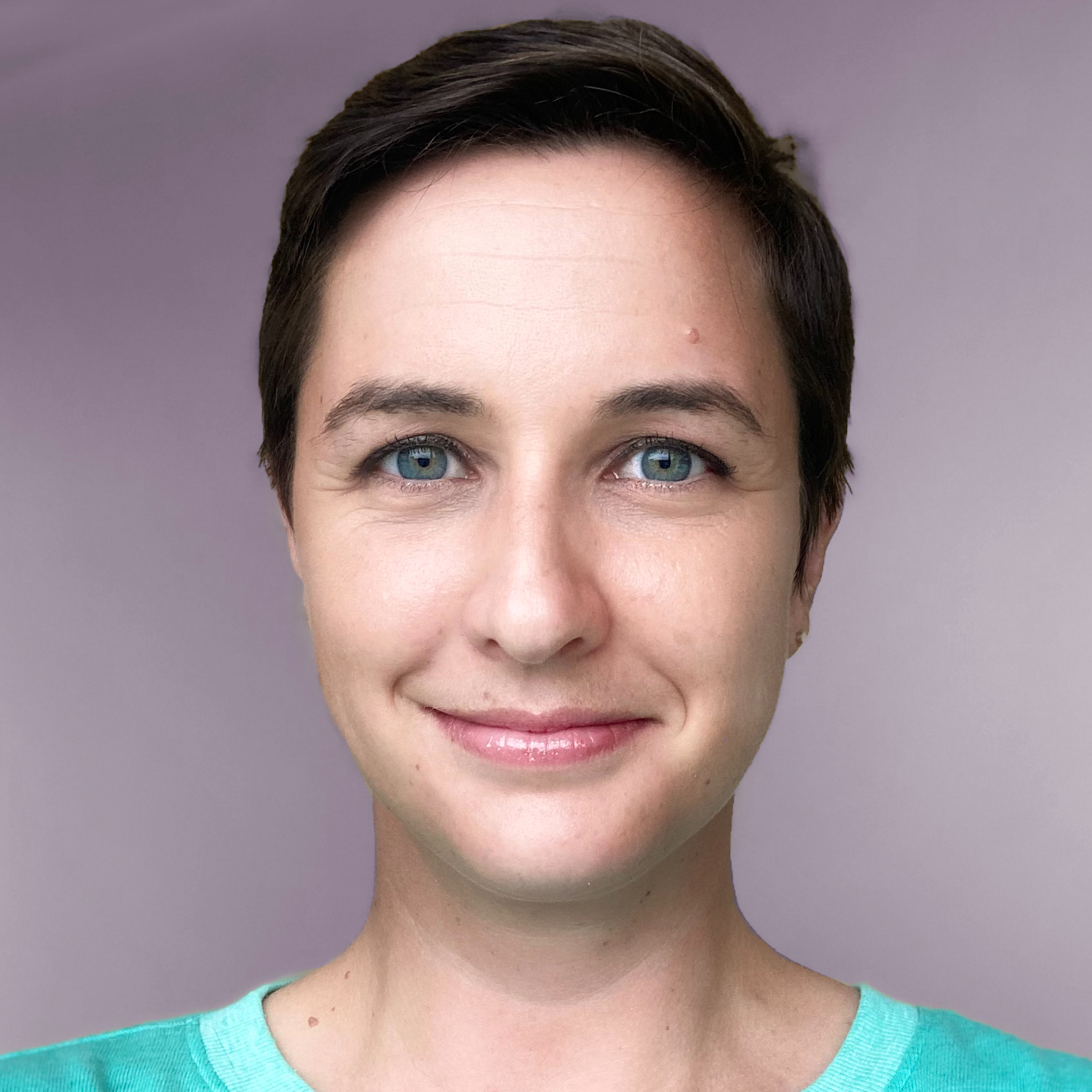 Anne Hunnell ChenAssistant Professor of Art History and Visual Culture
Anne Hunnell ChenAssistant Professor of Art History and Visual Culture
[email protected]
845-758-7258
Office: Fisher Annex 110
Anne Hunnell Chen
Assistant Professor of Art History and Visual Culture
[email protected]
845-758-7258
Office: Fisher Annex 110
Anne Hunnell Chen is an Assistant Professor in Bard's Art History and Visual Culture and Experimental Humanities Programs. Dr. Chen specializes in the art and archaeology of the globally-connected Roman world, and is committed to exploring how low-barrier Linked Open Useable Data (LOUD) can be harnessed not only to provide more equitable access to archaeological data in the digital realm, but also to empower stakeholder audiences as collaborative curators. She is the founder and co-director of the NEH-funded International Digital Dura-Europos Archive (IDEA), an archaeological data accessibility project whose documentation efforts are aimed at sharing-out workflows that help to overcome disciplinary data silos and work to dislodge enduring impacts of colonialism. Thanks to her work on IDEA, her role as the Co-Chair and Annotations Activity co-coordinator for the international Pelagios
Network, and time spent as a fellow in the Department of the Ancient Near East at the Metropolitan Museum of Art in New York, Dr. Chen has extensive experience working with GLAM professionals and collections. Additionally, she has published on Roman, Persian, and Digital Humanities topics, and taught equally wide-ranging coursework. She also serves as an historical consultant for the Virtual Center for Late Antiquity (VCLA).
In Memoriam
(1946–2017)
William (Bill) Mullen, professor of classics, taught at Bard College from 1985 until his death on November 2, 2017. During his 32 years at the College, he had a profound impact on generations of Bard students. He was instrumental in the development of the Classics Program and First-Year Seminar. Professor Mullen was, writes President Botstein, “one of the College’s most beloved professors.” His loss is deeply felt at Bard and beyond.
Read Professor James Romm's Tribute to Professor Mullen
Read President Botstein's Tribute to Professor Mullen
